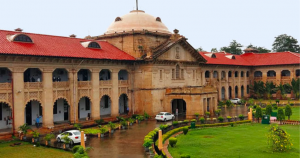GST WEEKLY UPDATE : 16/2021-22 (18.07.2021) By CA Vipul Khandhar

By CA Vipul Khandhar
- GSTN portal has recently added an option to pre-fill an application form for the tax refund of the tax filed for the taxpayers:
The portal has included the columns for the information required by the taxpayer to file the tax refund.
The columns for the tax refund details require certain information such as:
- Aadhar Number
- Income tax paid in Financial Year 2018-2019
- Capital Expenditure and investment made in Financial Year 2018-2019
- Advance tax paid in Financial Year 2019-2020 (till date)
The pre-fill application is supposed to be assisting all the tax claim refund to be quicker and easier to process as per the applicant request. This means that the taxpayer will be able to screen the tax claim for a genuine request and therefore making it accessible for all the taxpayers to claim the tax refund as soon as possible.
For filling Navigate to Services > Refunds > Refund pre-application Form option to submit Refund Pre-Application Form.
On submitting the refund pre-application form, you will be shown an acknowledgement message on the screen. No separate e-mail or SMS will be sent to you for the same. Once submitted; the Refund Pre-Application Form cannot be edited, revised or re-submitted again.
2. ICAI issues Practical FAQs on ITC under GST:
The ICAI has clarifying on eligibility and Conditions for taking ITC stated that-
- Section 16(1): eligible as ITC, which is ‘it must be used or intended to be used in the course or furtherance of his business’. As long as this condition is satisfied along with other conditions in section 16, ITC is eligible for the company.
- That the particular supplier would have crossed the threshold exemption limit for e-invoicing in the current year and hence, the invoicing portal would have enabled the e-invoicing for the supplier. However, if the supplier has already crossed the threshold and has become a qualified person to issue the e-invoice, it becomes mandatory for him to issue the e-invoice. If e-invoice is not issued, then as per rule 48(5), the said invoice shall be an invalid invoice. Therefore, if the recipient wants to claim ITC, he should have a valid invoice which is e-invoice with a valid IRN [as per section 16(2)(a)].
- In the absence of e-way bill for any inputs, the credit of the same can be denied in case of refund or GST Audit said that Section 16(2)(b) of the CGST Act, 2017.
- However, the deeming provision has been created in the Act by way of insertion of an explanation to section 16(2)(b) wherein the receipt of goods by ship-to party will also be considered as receipt of goods by bill-to party thus making them eligible for credit. There cannot be a denial of ITC to a taxpayer who does not have physical possession of the e-way bill if he is otherwise able to prove the receipt of goods. (detail FAQ on ICAI website).
- Implementation of RMS for processing of Duty Drawback claims:
The CBIC issued Circular No. 15 /2021-Customs dated July 15, 2021 w.r.t. implementation of Risk Management System (“RMS”) for processing of Duty Drawback claims.
Custom has inform that the above-referred risk-based processing of shipping bills with claim of duty drawback is being initiated with effect from July 26, 2021. Shipping bills with claim for duty drawback will be routed on the basis of risk evaluation through appropriate selection criteria. For this purpose, after the filing of correct and complete EGM, shipping bills will be sent by ICES to RMS. Subsequent to RMS treatment, ICES will be informed for each shipping bill whether for the processing of the drawback claim, a particular shipping bill will be facilitated without intervention or will be routed to the proper officer. This process is expected to reduce the processing time taken for drawback claims, enable quick disbursal to exporters and rationalize the Customs’ workload.
- RoSCTL on apparel export extended till March 31, 2024 at existing rates:
The Govt has given its approval for continuation of Rebate of State and Central taxes and Levies (RoSCTL) with the same rates as notified by Ministry of Textiles vide Notification dated March 08, 2019 on exports of Apparel/Garments (Chapters-61 & 62) and Made-ups (Chapter-63) in exclusion from Remission of Duties and Taxes on Exported Products (RoDTEP) scheme for these chapters. The scheme will continue till March 31, 2024.
- Time limit for filing claims under TMA extended upto 30.09.2021 for quarter ending on 31.03.2020 and 30.06.2020:
The DGFT issued Public Notice No. 14/2015-2020 dated July 13, 2021 for extension of time limit for filing claims under Transport and Marketing Assistance (TMA) Scheme upto September 30, 2021 for quarter ending on March 31, 2020 and June 30, 2020.
DGFT hereby makes the following amendment in Chapter 7(A) of the Handbook of Procedures (2015-20) with immediate effect:
In para 7A 01(d), the following sentence is added at the end :
“Application for refund of such claims for the quarter ending March 31, 2020 and June 30, 2020 may be filed upto September 30, 2021”.
- Recent AAR & Judicial Decisions:-
(i) AAR On ITC not allowable on Food and Beverages consumed in Industrial Canteen:
AAR ruled that availing of eligible Input Tax Credit on inputs & input services relating to the main business activity of manufacturing is not allowed against GST liability on renting of immovable property. The AAR said that Input Tax Credit is not allowable in respect of manpower services hired for industrial canteen and LPG cylinders refilled for use in industrial canteen. Lastly, the AAR ruled that Input Tax Credit is allowable in respect of medicines purchased in factory hospitals and other inputs and input services used in factory hospitals and it would be applicable with effect from 01.02.2019, and not for the prior period.
(ii) AAR On Housing Society to pay GST on Maintenance Charges if Members’ monthly contribution exceeds Rs.7,500:
(Applicant – Emerald Court Co-operative Housing Society Limited)
The AAR ruled that housing societies should pay Good and Service Tax (GST) on Maintenance Charges if Members’ monthly contribution exceeds Rs.7,500.
The Co-op Housing Society Ltd looks after the upkeep of the society and its members. The CHS provides services to its members in the form of facilities or benefits like security, cleaning, repairs, water, common electricity, etc. It also arranges to pay for the ancillary services like accounting, auditing, caretaker, etc. Presently, the CHS is raising monthly bills on its members which consist of 2 parts, one is the property tax on which GST is not being charged and another is ‘Maintenance charges’ on which GST is being charged. The applicant has sought the advance ruling on the issue of chargeability of GST on such transactions since there could be no sale by the Co-operative Housing Societies to their own permanent members, for the doctrine of mutuality would come into play.
To elaborate, CHS treated itself as the agent of the permanent members entirely and advanced the stand that no consideration passed for the services rendered by the society to its members and there was the only reimbursement of the amount by the members and therefore no GST could be levied.
AAR ruled that the applicant is liable to pay GST on maintenance charges (by whatever name called) collected from its members if the monthly subscription or contribution from the members is more than Rs.7,500/- per month. “In view of the amended Section 7 of the CGST Act, 2017, we find that the applicant society and its members are distinct persons and the amounts received by the applicant, against maintenance charges, from its members are nothing but consideration received for supply of goods/services as a separate entity.
The principles of mutuality which has been cited by the applicant to support its contention that GST is not leviable on the maintenance charges collected by them from its members, is not applicable in view of the amended Section 7 of the CGST Act. 2017 and therefore, the applicant has to pay GST on the said amounts received against maintenance charges, from its members,” the AAR ruled.
(iii) AAR On 12% GST payable on PVC tufted Coir Mats and Matting:
(Applicant –Alleppey Fibretuft Pvt Ltd)
The AAR ruled that 12% GST payable on PVC tufted Coir mats and matting. The applicant submits that the PVC Tufted Coir Mats and Matting are manufactured using technologically advanced machines. The machine is designed in such a way that coir yarn stacked in creel stand is automatically fed into cutting / tufting head where that yarn is cut into bits of required pile height and tufted over a uniform thickness PVC base in conveyor belt which is cured by passing over heated radiators (Heating Zone) and then chilled surface (chilling zone) of the continuous process machinery. The PVC base solidifies and results in formation of PVC matting in rolls which can also be cut into mat size by longitudinal and cross cutting. All the above process is done in this machine automatically and this requires minimum labour for operation.
(iv) AAR On 18% GST payable on Online, Offline Tendering:
(Applicant – Maharashtra State Dental Council)
AAR ruled that Online tendering will be considered as Supply of Services and offline tendering in its entirety involving sale of form, payment of tender fees and submission of bids etc. will be considered as Supply of Services. The AAR ruled that Online and Offline tendering are covered under services heading 9997. The AAR ruled that activities conducted by the Maharashtra State Dental Council are the “Registration Activities and their related activities laid down in the Act” are not exempted under the Notification No. 12/2017-Central Tax (Rate) dated June 28, 2017.
(v) AAR On GST on Brush Holder Assembly, Lead Wires and parts for Railway:
(Applicant – Arco Electro Technologies Pvt. Ltd)
The products Brush Holder Assembly and parts, Lead Wires and Insulating Rods are to be classified under heading 86.07 only when they are manufactured as per the drawings and specifications given to the applicant by the Indian Railways and only when the said goods are used in traction motors meant for Railway locomotives.
Disclaimer:
This publication contains information for general guidance only. It is not intended to address the circumstances of any particular individual or entity. Although the best of endeavour has been made to provide the provisions in a simpler and accurate form, there is no substitute to detailed research with regard to the specific situation of a particular individual or entity. We do not accept any responsibility for loss incurred by any person for acting or refraining to act as a result of any matter in this publication.
(Author is a well known Chartered Accountant and associated with Khandhar & Associates Ahmedabad)





